Apply to SBIR/STTR
Also known as the America’s Seed Fund, these grants support for high-risk innovation research for small business companies. Technological development enriches our culture. Imagine the impact you could make on society by translating laboratory discoveries into commercial products or services.
What are SBIR/STTR Programs?
Commercialization is an essential process of translating fundamental scientific discoveries that benefit the community. Early-stage small businesses such as startups need initial funding for proof-of-concept or feasibility studies for commercialization. Eleven federal agencies support small business R&D with Small Business Innovation Research (SBIR)/Small Business Technology Transfer Research (STTR) programs that are known as America’s Seed Fund. These programs fund in two phases to promote research investigations of innovative technologies that have high commercialization potentials.
Phase I
Feasibility or proof of concept
- Feasibility
- Technical merit
Phase II
Validation & development
- Validation/development
- Commercialization plan
Phase III
Commercialization
- Bridge grant, contracts, Commercialization Readiness Pilot grant
Which federal agencies fund SBIR/STTR programs, and what research topics do they fund?
Currently, 11 federal agencies participate in SBIR/STTR programs to fund small businesses’ commercialization research. While the programs are managed by the Small Business Administration (SBA), each agency has its own mission. Funding opportunity announcements, due dates and funds vary, and it is important to follow the agency specific instructions. Please visit the link to understand the agency specific program details.
DHHS: NIH, FDA, ARPA-H, CDC (SBIR/STTR, Grants)
Health, life science and biomedical discoveries that could impact the lives of patients and their families.
NSF (SBIR/STTR, Grants)
Almost all areas of technology and market sectors (with the exception of clinical trials).
DOE (SBIR/STTR, Grants)
Advanced scientific computing research, environmental management, fossil energy, biological and environmental research, fusion energy science, cybersecurity, energy security, renewable energy and more.
.
DOD (SBIR/STTR, Contracts)
5G, AI/autonomy, biotechnology, control and communications, cybersecurity, directed energy, hypersonic, microelectronics, network command, nuclear, quantum sciences, space and more.
.
EPA (SBIR, Contracts)
Clean and safe water, air quality and climate, land revitalization, homeland security, sustainable materials management, safer chemicals and risk assessment.
NASA (SBIR/STTR, Contracts)
Propulsion systems, flight computing and avionics, aerospace power and energy storage, robotic systems, communications, navigation, and orbital debris tracking/characterization systems.
D. Commerce: NOAA, NIST (SBIR)
Technologies in support of the missions of the National Oceanic and Atmospheric Administration (NOAA – LOI needed in Jan) and the National Institutes of Standards and Technology (NIST).
D. Homeland Sec (SBIR, Contracts)
Borders and maritime security, chemical and biological defense, critical infrastructure and resilience, cybersecurity, explosives detection and aviation screening, first responders and more.
D. Education (SBIR)
New education technology products for use by students, educators, infants, toddlers, students with or at risk for disabilities, or teachers in early intervention or special education settings (PI @SB at least 51%).
DOT (SBIR)
Technologies in support of DOT Operating Administration: federal highway administration, federal railroad administration, federal transit administration, and pipeline and hazardous materials safety administration.
USDA (SBIR/STTR, Grants)
Forest resources, plant/animal production and protection, conservation of natural resources, food science and nutrition, rural and community development, aquaculture, biofuels and biobased products, small and mid-size farms.
What is the typical workflow for a SBIR/STTR grant application?
It takes at least a few months to prepare a competitive grant proposal. Please start early and find your support.
Ideas
- Check agencies for funding topics and due dates
- Start you company or partner with a small business concern (SBC)
- Register your company ASAP (Takes a few months)
pre-application
- Talk to the Technology Licensing Office
- Organize your research aims
- Arrange a call with a program official
Application and Prep
- Inform the Pre-Award Office or OSP
- Request a letter of support/biosketch/etc
- Begin drafting and revising your application
Submit
- Application is submitted by the SBC
- Tracking/JIT/NOA through the SBC
Frequently Asked Questions
What are the eligibility requirements for the SBIR/STTR programs?
- Primarily U.S. owned (51% minimum).
- 500 or fewer employees (including part-time/leased employees).
- U.S. based company (fund cannot pay foreign entities or collaborators).
- Principal investigator (PI) must be employed by the SBC (when the proposal is submitted), work full time for the SBC (once an award is made), or research institution (PI for certain STTR or co-PI for SBIR/STTR). Make sure to confirm with agency specific requirements.
What are the registration requirements for companies?
All small business concerns (SBCs) need to complete the common requirements as well as agency specific requirements. Please note: DoD has a mandatory foreign disclosure requirements and other changes by the “SBIR and STTR Extension Act of 2022 (Pub. L. 117-183)” and the revised SBA Policy Directive.
What are the differences between SBIR and STTR?
While both programs fund commercialization research projects, there are some administrative differences between the programs.
SBIR
- Participating Agency Budget: 3.2%
- Research partnerships are allowed
- Small businesses may outsource:
- 33% of Phase I research
- 50% of Phase II research
- Principal Investigator (PI): Primary employment (> 50%) must be with the small business
STTR
- Participating Agency Budget: 0.45%
- Partnerships with a nonprofit research institution (RI) is required
- Minimum work requirements:
- 40% by small business
- 30% by research institution partner
- The remaining work may be done by either or outsourced
- Principal Investigator (PI): Employed by either the partnering RI or SB (*NSF: SB)
Do you have examples of successfully funded SBIR or STTR grant applications?
Does the U provide SBIR/STTR Education or Workshop?
Please mark your calendar for an upcoming workshop:
Introduction to the NIH (National Cancer Institute*) SBIR/STTR Programs
Date: April 16, 2024 (Time: TBD)
Location: TBD
*Two SBIR Program Directors will be available for one-on-one discussion
Past workshops
SBIR101 (June 8, 2023) at the Altitude Lab
What is the benefit of the I-Corps™ training program for SBIR/STTR?
Understanding the commercialization potential of your technology is important for your company’s business plan. I-Corps™ training will teach you the skills to learn about the user’s perspective and market potential through interviews. These experiences can be extremely valuable to prepare the commercialization plan for a SBIR/STTR project. The U has partnered with the National Science Foundation (NSF) I-Corps™ Hub West program. Please check the U I-Corps™ Program for more information.
Resources
SBIR Phase I application checklist
NIH Phase I Application Checklist
DOE Phase I Application Checklist


